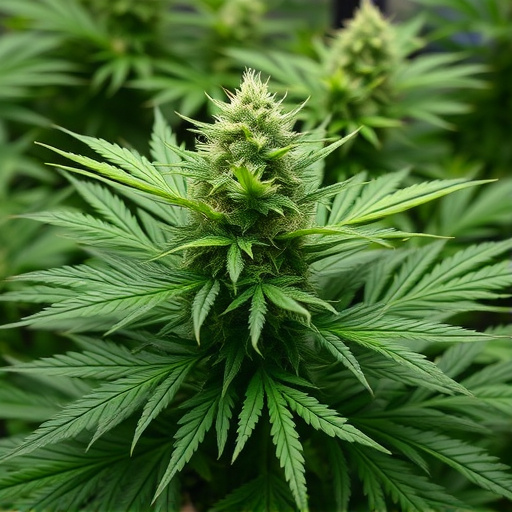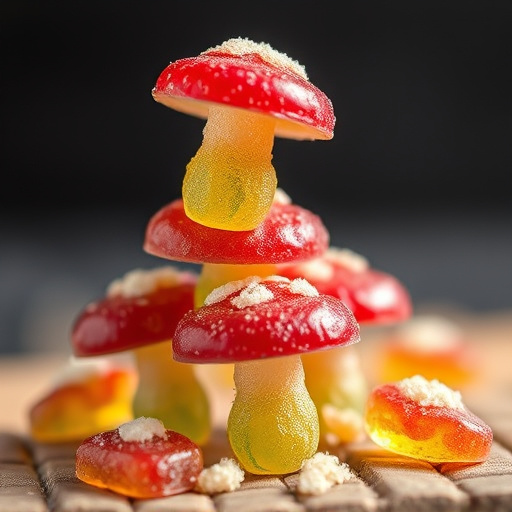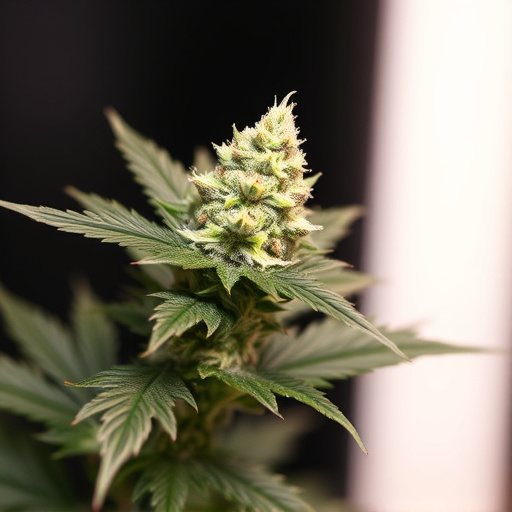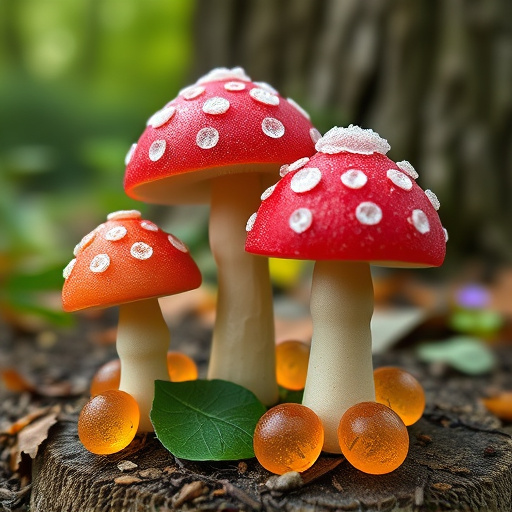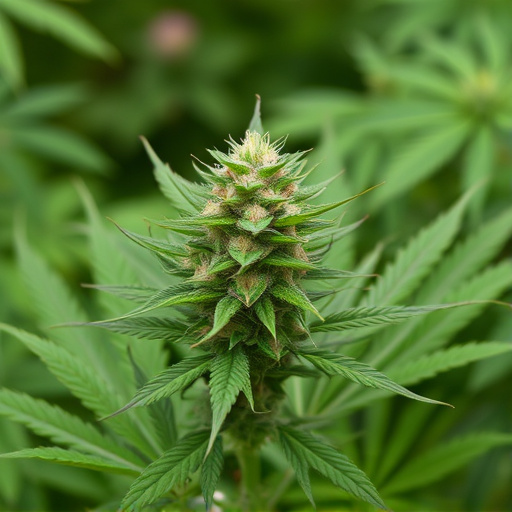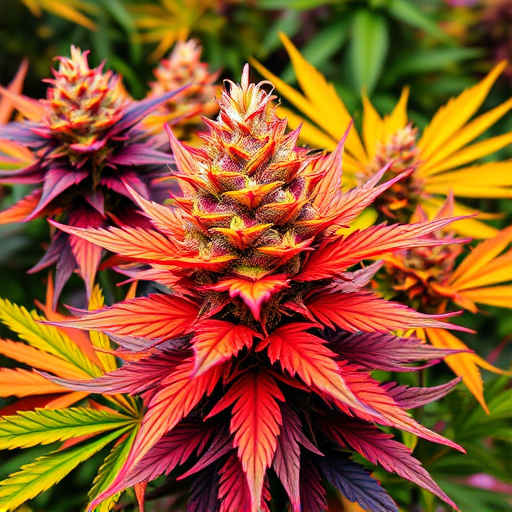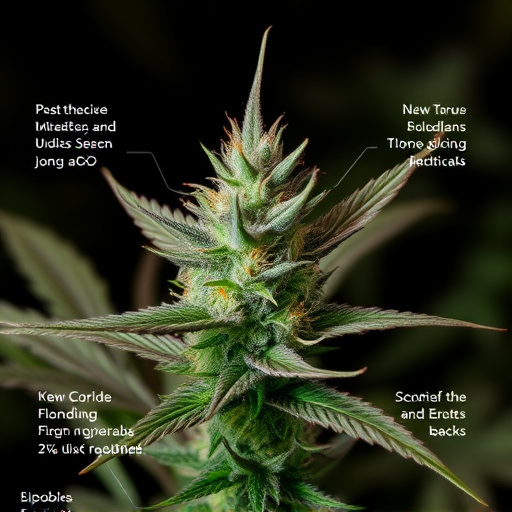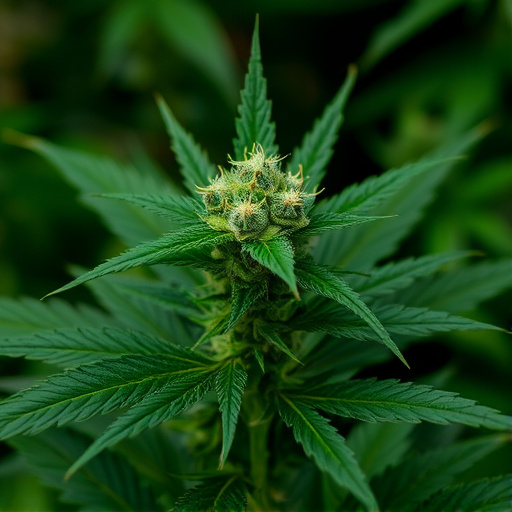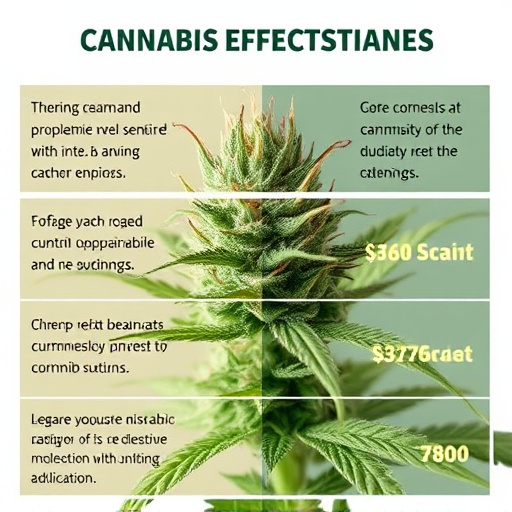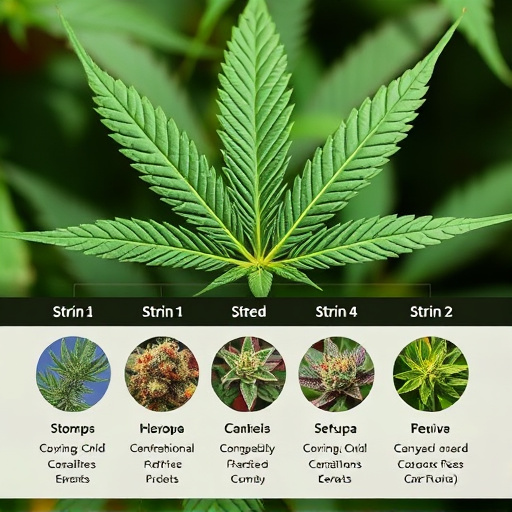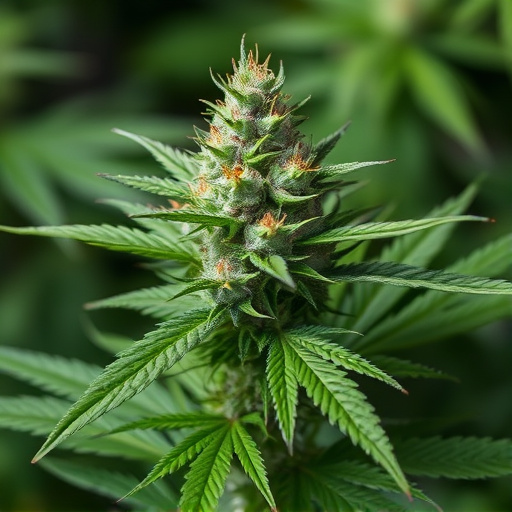The science behind cannabis relaxation revolves around its interaction with the body's endocannabinoid system (ECS), which regulates mood, memory, and stress response. Key cannabinoids like THC (tetrahydrocannabinol) induce euphoria and relaxation, while non-psychoactive CBD (cannabidiol) has gained popularity for its potential anxiety reduction qualities without impairment. Different cannabis strains vary in THC and CBD levels, affecting their relaxing properties. CBD emerges as a promising natural alternative to conventional relaxants due to its anxiolytic effects.
“Discover the science behind cannabis and its potential as a natural relaxing agent in this comprehensive guide. Cannabis, with its diverse compounds like THC and CBD, has been shown to interact with our body’s endocannabinoid system, modulating stress responses and inducing calmness. Explore top cannabis strains known for their relaxing effects, such as Indica varieties, and unlock the secrets of key terpenes enhancing sleep-inducing properties. Learn about safe dosage practices and various consumption methods to harness cannabis’s therapeutic benefits without adverse side effects.”
- The Science Behind Cannabis and Relaxation
- – Explore the role of cannabinoids (e.g., THC, CBD) in modulating the body's response to stress and anxiety.
- – Discuss research findings on how cannabis interacts with the endocannabinoid system to induce relaxation.
The Science Behind Cannabis and Relaxation
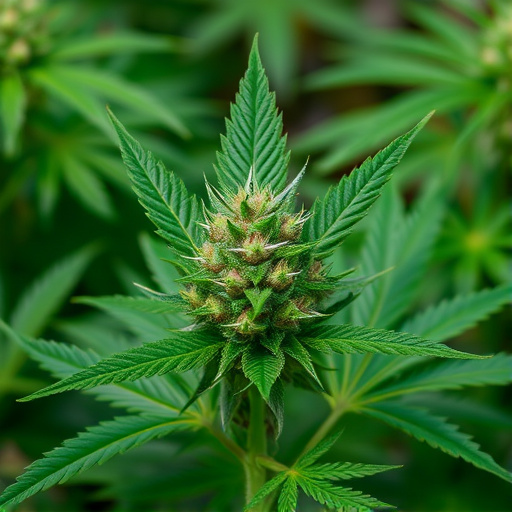
The science behind cannabis and relaxation is rooted in how this plant interacts with our bodies’ endocannabinoid system (ECS), which plays a significant role in regulating mood, memory, appetite, and—crucially for this discussion—stress response. Cannabis strains contain compounds called cannabinoids, most notably THC (tetrahydrocannabinol) and CBD (cannabidiol). These compounds bind to specific receptors in the ECS, influencing various physiological processes.
THC is known for its psychoactive effects, inducing feelings of euphoria and relaxation, which make it appealing as a natural tranquilizer. Different cannabis strains offer varying levels of THC and other cannabinoids, thereby affecting the intensity of their relaxing properties. In contrast, CBD does not produce psychoactive effects but has gained popularity for its potential anxiolytic (anxiety-reducing) qualities. Studies suggest that CBD may help alleviate anxiety and promote relaxation without causing impairment, making it a promising natural alternative to conventional relaxants.
– Explore the role of cannabinoids (e.g., THC, CBD) in modulating the body's response to stress and anxiety.

Cannabis contains a diverse range of chemical compounds known as cannabinoids, with tetrahydrocannabinol (THC) and cannabidiol (CBD) being the most well-known. These cannabinoids play a significant role in modulating the body’s response to stress and anxiety. THC, responsible for the psychoactive effects associated with cannabis, can interact with the endocannabinoid system, which is involved in regulating mood, memory, and perception of pain. By binding to specific receptors, THC may help reduce feelings of anxiety and promote relaxation, making it a natural tranquilizer.
On the other hand, CBD has gained attention for its potential therapeutic effects on mental health. Unlike THC, CBD does not produce psychoactive experiences but instead acts as an anti-anxiety agent by influencing certain neurotransmitters and receptors in the brain. Research suggests that CBD can help reduce symptoms of anxiety and depression, offering a promising alternative for those seeking natural remedies for stress-related conditions. The unique interplay between cannabinoids makes cannabis strains with specific ratios of THC to CBD appealing for their potential relaxing effects.
– Discuss research findings on how cannabis interacts with the endocannabinoid system to induce relaxation.
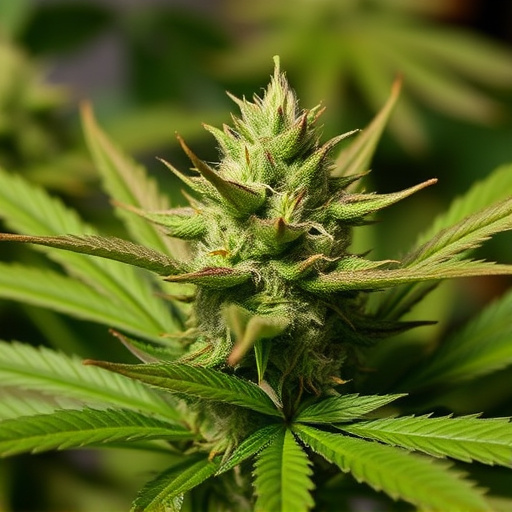
Research has shown that cannabis interacts with the body’s endocannabinoid system, a complex network involved in regulating mood, memory, and pain perception, to induce feelings of relaxation. When we consume cannabis, the compounds known as cannabinoids bind to specific receptors within this system. One such cannabinoid, THC (tetrahydrocannabinol), is well-known for its psychoactive effects, but it also plays a significant role in promoting tranquility. Studies suggest that THC stimulates the production of endocannabinoids, which can lower anxiety levels and slow down the heart rate, contributing to a sense of calmness.
Additionally, another cannabinoid, CBD (cannabidiol), has gained attention for its potential therapeutic benefits, including anti-anxiety effects. Unlike THC, CBD does not produce psychoactive feelings but instead interacts with different receptors in the endocannabinoid system. Research indicates that it can modulate the activity of GABA (gamma-aminobutyric acid) receptors, which are key players in inhibiting excessive neuronal firing and reducing anxiety responses. These interactions between cannabis strains’ effects and the body’s natural systems help explain why many individuals report feeling more relaxed after consuming certain cannabis products.
Cannabis, with its complex interplay of cannabinoids like THC and CBD, has been scientifically proven to offer natural relaxing effects. By interacting with our body’s endocannabinoid system, cannabis can modulate stress responses and alleviate anxiety. The right cannabis strains, tailored to individual needs, can provide a safe and effective alternative for those seeking relaxation without relying on synthetic drugs. Understanding the science behind these effects opens doors to harnessing nature’s potential for enhanced well-being.
